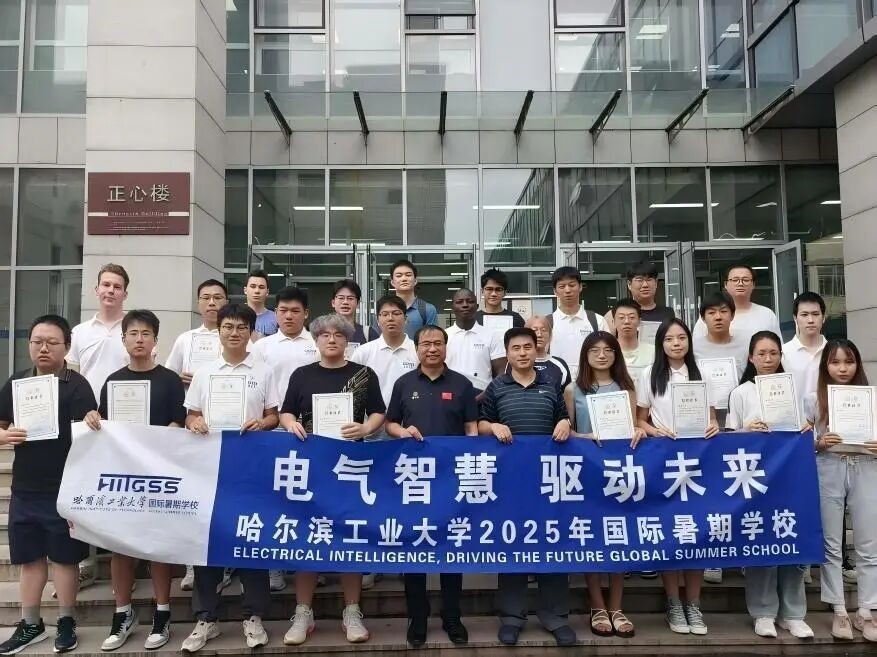Undergraduate Academic Affairs Office, HIT Undergraduate School

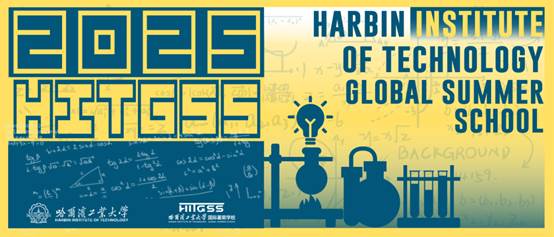
From July 7th to July 18th, the “Electrical Intelligence, Driving the Future” International Summer School, organized by the School of Electrical Engineering and Automation at Harbin Institute of Technology, was successfully held. This was the sixth summer school hosted by the School of Electrical Engineering. A total of 26 students from well-known universities both in China and abroad participated. These universities included the University of Science and Technology of China, Xi’an Jiaotong University, South China University of Technology, Shandong University, Shenyang University of Technology, Bauman Moscow State Technical University, and Ural Federal University.
Lectures
The thematic courses were taught by Professor José Marcos Alonso Alvarez from the Department of Electrical Engineering at the University of Oviedo, Spain. As a former Associate Editor of IEEE Transactions on Power Electronics and IEEE Journal on Emerging and Selected Topics in Power Electronics, and the Chair of the Industrial Lighting and Display Committee of the Industry Applications Society (IAS), Professor Alvarez gave in-depth lectures on the latest research in lighting driver technology.
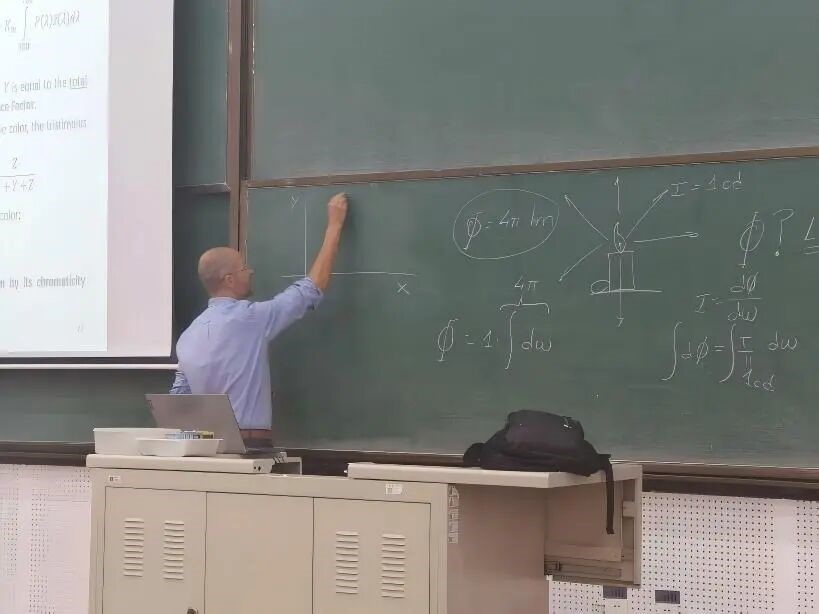
Professor José Marcos Alonso Alvarez delivering his lecture
The academic seminar series featured many well-known experts in the field of electrical engineering. These included Professor Dianguo Xu, Professor Liyi Li (a national-level high-tier talent), Professor Yi Sui (a national-level young talent), and Professor Ying Xu, an expert in power systems. These scholars introduced the latest developments, research hotspots, and future directions in electrical engineering.
Professor Gang Zhang led the practical courses. He explained the structure and principles of new energy vehicles and guided the participants through virtual disassembly and assembly exercises. Students got hands-on experience in diagnosing and fixing simple faults in key components such as electronic control systems, motors, batteries, chassis, and automotive electrical equipment.
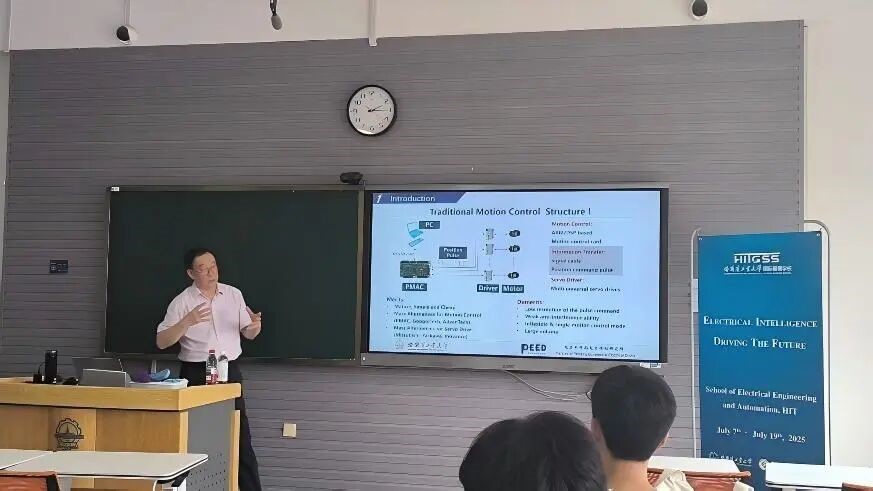
Professor Xu Dianguo presenting his lecture
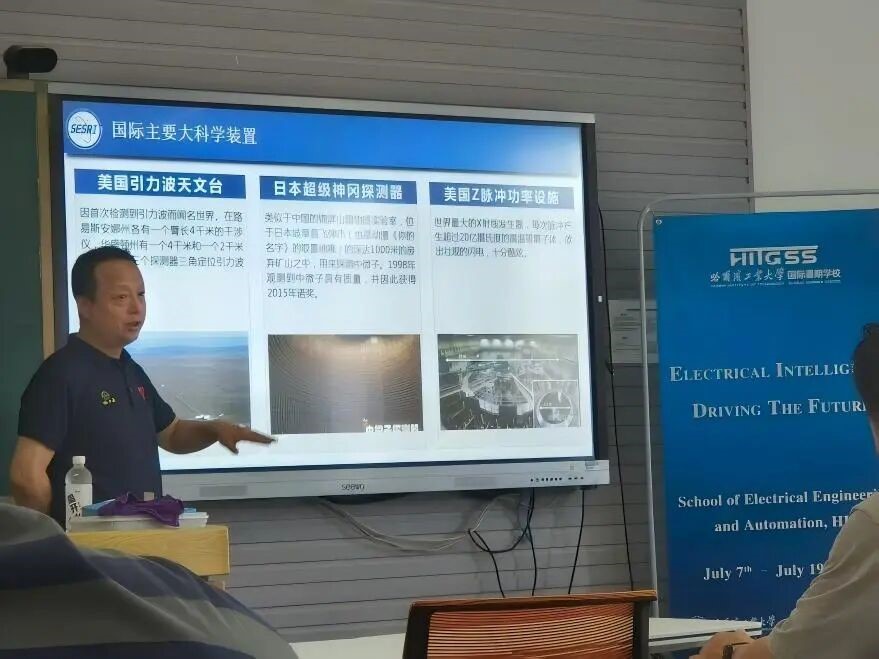
Professor Li Liyi presenting his lecture
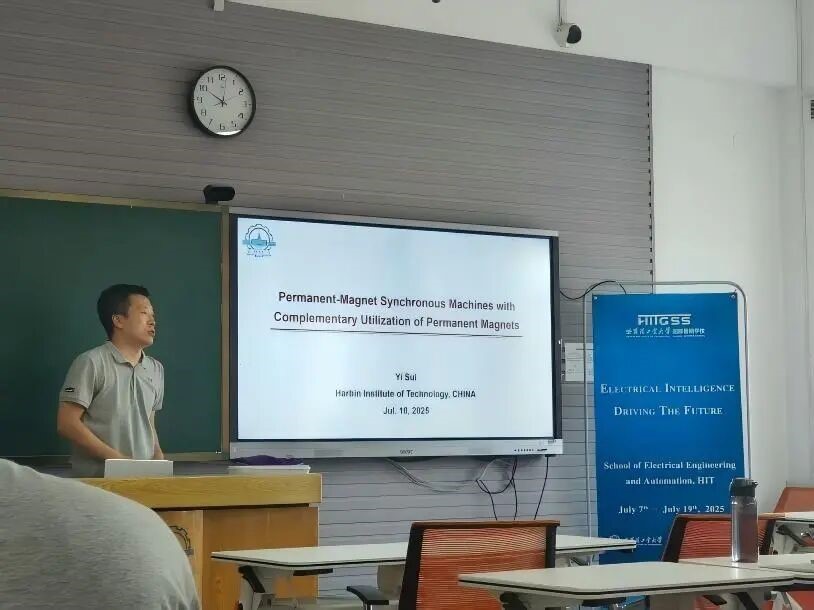
Professor Yi Sui presenting his lecture
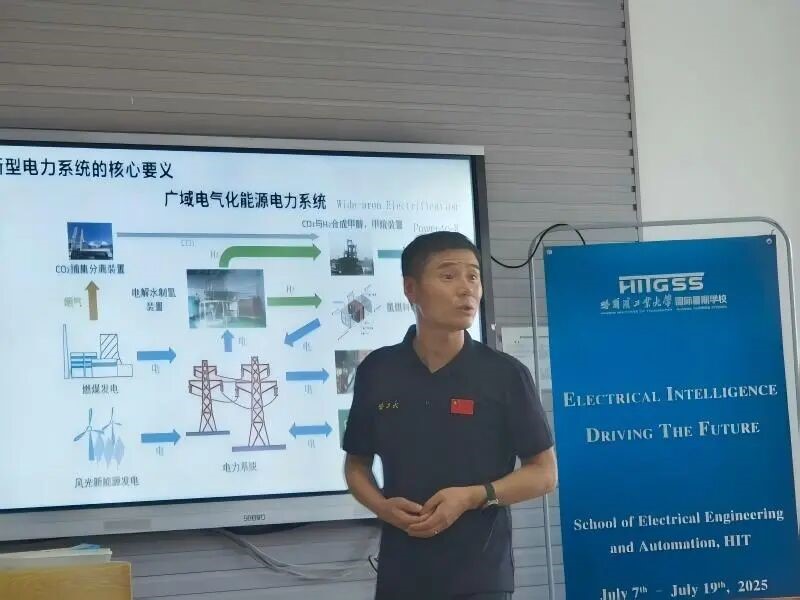
Professor Xu Ying presenting his lecture
Hands-on Projects
During the “Electrical Intelligence, Driving the Future” International Summer School, the participants took part in the practical project called “Structure Principles and Virtual Disassembly of New Energy Vehicles”. The project focused on experimental units like electronic control systems, motors, batteries, chassis, and automotive electrical equipment. It combined explanations from instructors with hands-on group experiments. The participants worked together in teams to complete tasks such as operation, data collection, and fault diagnosis for each unit. This immersive experience helped them better understand the operating principles and technological progress of new energy vehicles, and also improved their experimental skills and teamwork abilities.
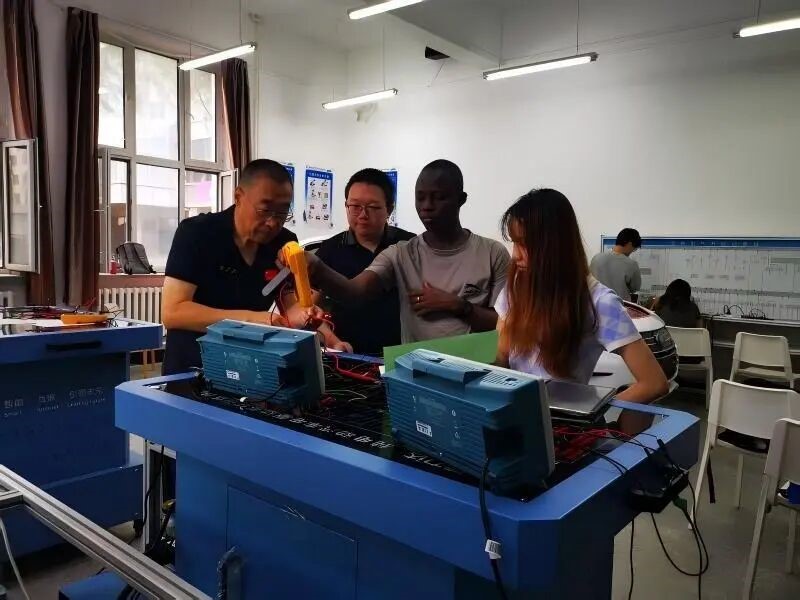
In addition to the courses and practical projects, the summer school organized team-building activities and visits to large-scale scientific engineering facilities. Through carefully planned team-building exercises, the students got to know each other better, developed a sense of teamwork, and improved their collaboration skills. During the visit to the large-scale scientific facilities, the participants learned about the construction process and working principles of these facilities, and understood China’s efforts and achievements in developing self-researched equipment.
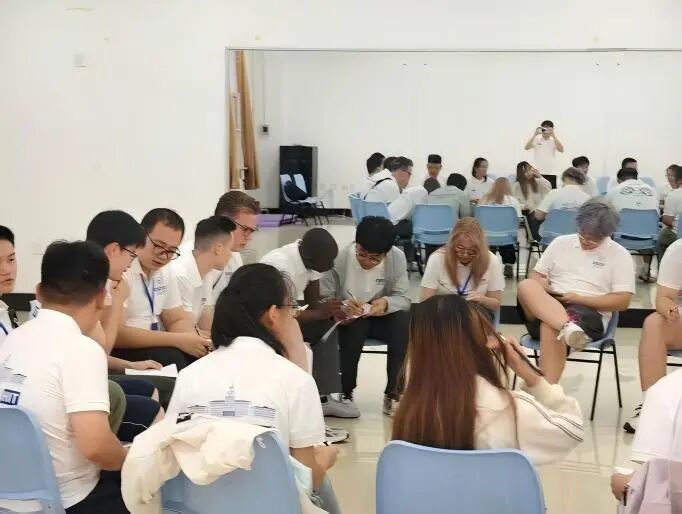
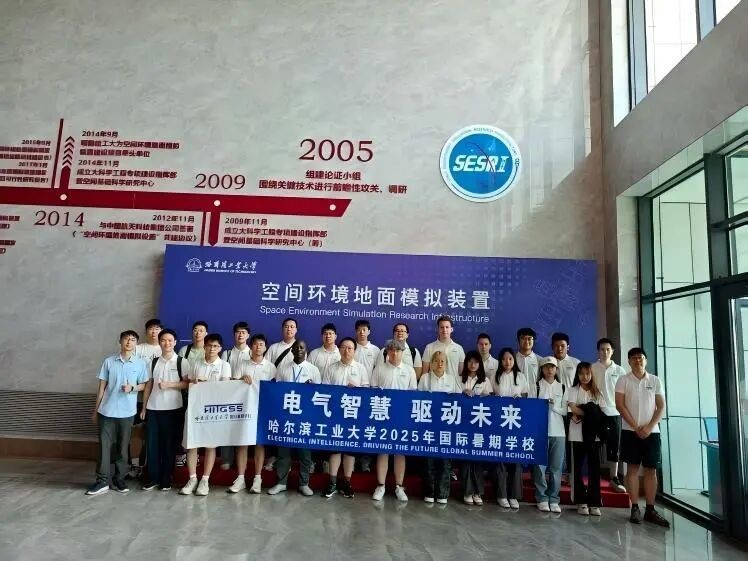
Closing Remarks
The “Electrical Intelligence, Driving the Future” International Summer School achieved multiple breakthroughs in two weeks, from simply transferring knowledge to updating paradigms. The 26 domestic and international participants not only systematically learned about the future direction of electrical engineering through cutting-edge lectures and collaborative team projects, but also developed a closed-loop capability framework that included “academic vision-problem awareness-solution development” through cross-cultural collaboration. These participants became the “young pillars” for long-term partnerships, turning one-time classroom interactions into sustainable international exchanges. Moreover, the program updated its curriculum based on real-time feedback from different cultural and academic backgrounds, laying the foundation for personalized teaching materials and methods. This initiative provides a replicable and scalable model for promoting higher engineering education around the world.
